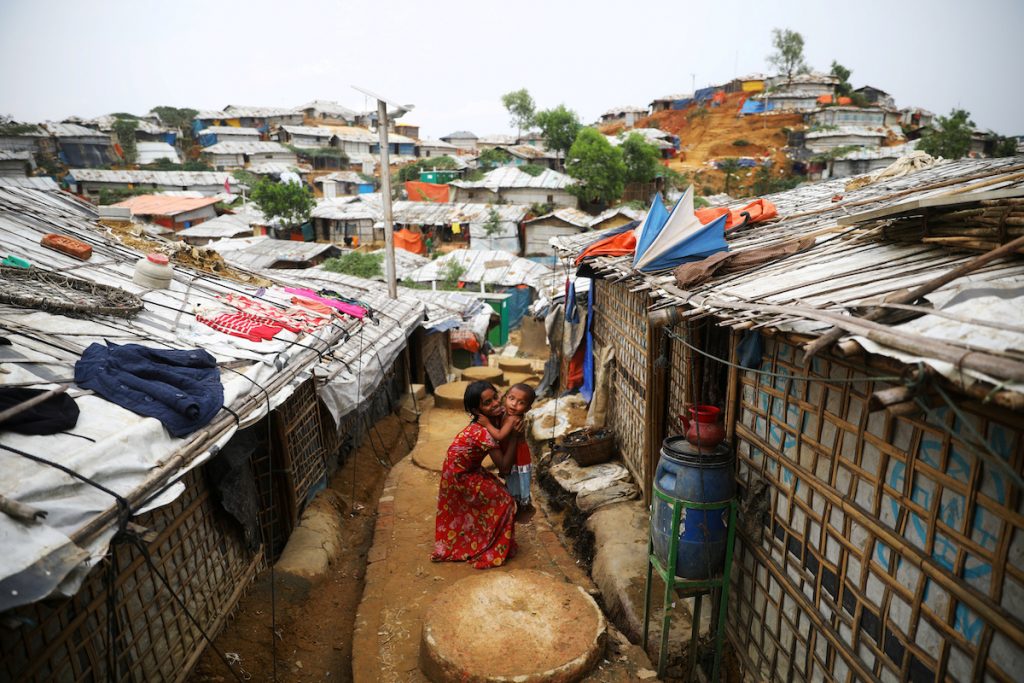A group of Southeast Asian legislators called on the Association of Southeast Asian Nations this week to step up its response to the worsening crisis in Myanmar’s Rakhine State.
The ASEAN Parliamentarians for Human Rights (APHR) urged the regional body “to ensure it actually helps end the cycle of violence and displacement.”
The legislators noted that Myanmar “continues to demonstrate no desire to solve the protracted issues, or restore the rights of the Rohingya.”
They also cited what they described as ASEAN’s reluctance to address the worsening crisis, saying the region’s “chronic lack of leadership” has led to an unceasing cycle of violence and displacement.
In a new report titled “ASEAN’s Rakhine Crisis: Assessing the regional response to atrocities in Myanmar’s Rakhine State,” the parliamentarians noted that ASEAN “has mostly been ineffective, if not at times deeply problematic,” in its response to the Rohingya crisis.
“Initially, the crisis exposed significant divisions among ASEAN Member States, which were exacerbated by a lack of leadership at the ASEAN Secretariat, and led some States to take individual action,” read the report released on October 20.
The report said the lack of strong leadership, at the Secretariat level and among member States, “has prevented ASEAN from articulating a clear vision and strategy that would effectively help end the cycle of violence and displacement in Rakhine.”
Charles Santiago, a Malaysian Member of Parliament and chairman of APHR, said “ASEAN’s lack of cohesive and strategic leadership” has allowed authorities in Myanmar authorities “to take total control of the narrative, which issues the bloc can focus on, and who they can engage with.”
Santiago said Myanmar’s full control of the narrative of the Rakhine State crisis has resulted in ASEAN’s interventions to only focus on “low-hanging fruit” and “failed to address fundamental issues.”
The 37th ASEAN Summit, where ASEAN leaders are expected to discuss various pressing issues in the region, is set to take place in mid-November.

APHR urged the regional body to act in spite of Myanmar’s continuous demonstration of unwillingness to solve the Rohingya issue.
“The plight of the Rohingya is not only a stain on our region but on all of humanity,” said Santiago, adding that “Myanmar’s claims that this is an internal issue could not be further from the truth.”
“Everyone who calls Southeast Asia home is impacted by this crisis, whether it is those saving refugee boats due to our governments’ inaction, or the shame we all feel on our collective conscience,” he said.
On Aug. 25, 2017, Myanmar’s security forces launched a devastating attack on Rohingya communities in Rakhine State, in the western part of the country.
In the weeks that followed, thousands were killed, women and girls were raped, hundreds of homes and entire villages burned to the ground, and more than 740,000 women, men, and children forced to flee to neighboring Bangladesh.
The attacks took place against a background of decades-long discrimination, persecution, and violence against the Rohingya, a situation that continues today.
Today, at least one million Rohingya Muslims are stranded in refugee camps in Bangladesh.
Santiago said the ASEAN must recognize the Rohingya situation as a “human rights crisis that was created by the Myanmar government, and to actively include the Rohingya community in its decisions.”
He alleged that Myanmar’s manipulation of how ASEAN would address the problem has “led to the exclusion of the Rohingya from crucial discussions about their own future.”
“ASEAN’s reluctance to adopt a holistic approach to Rakhine State, that addresses all aspects of the crisis, risks making the regional group at best counter-productive and at worst actively contributing to human rights abuses,” said Santiago.






